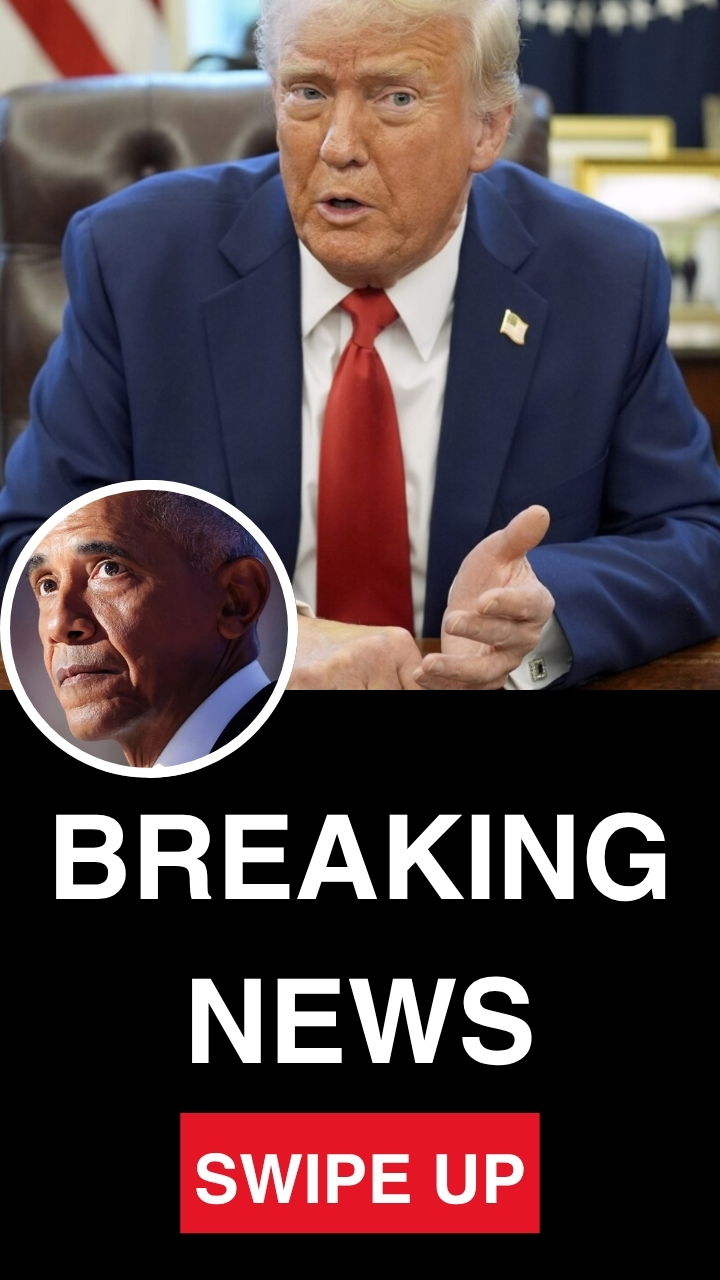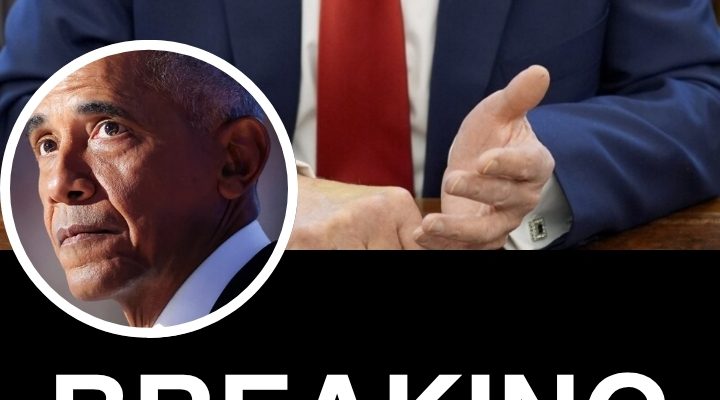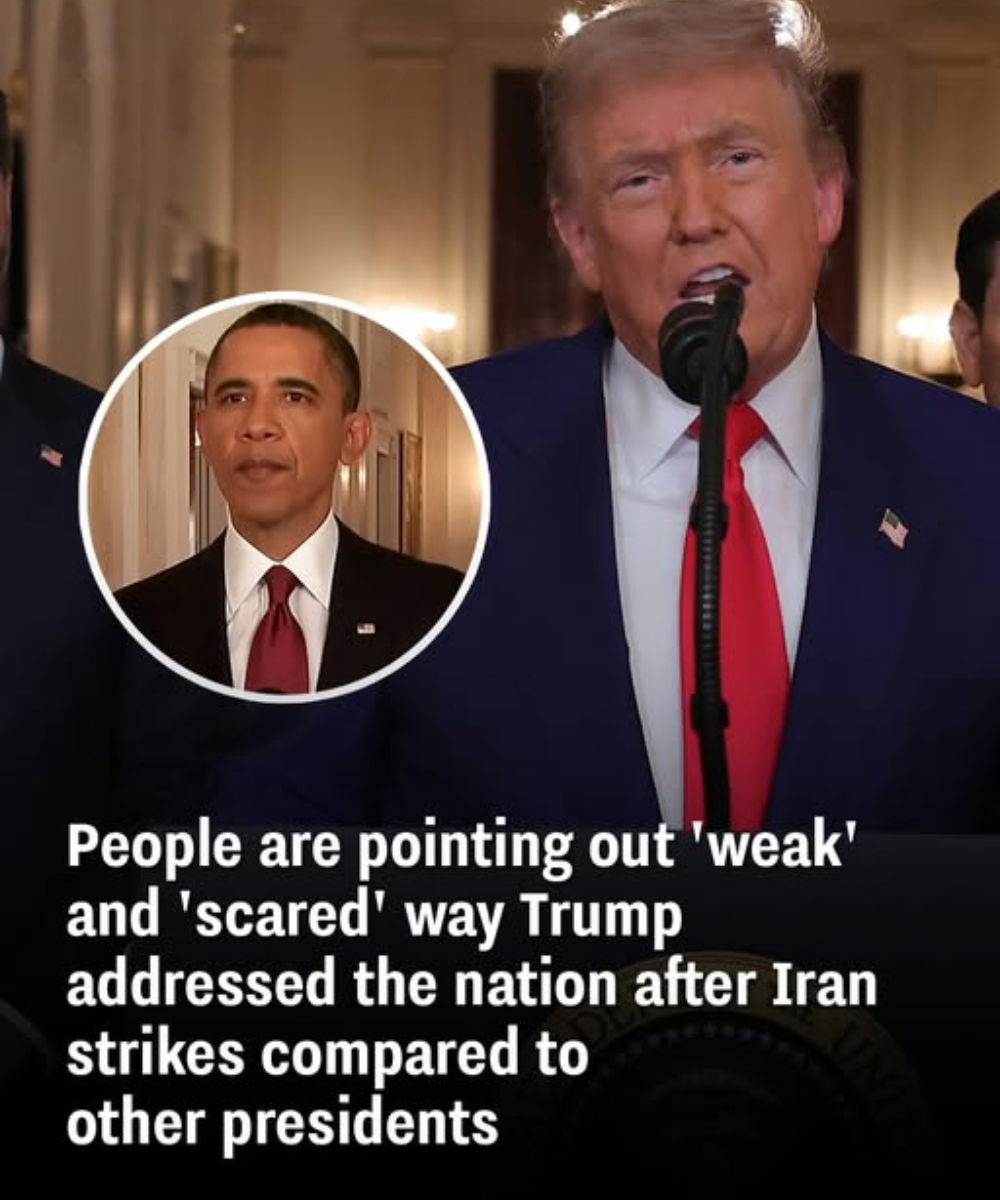
President Donald Trump is being criticized by some social media users as appearing “weak” and “afraid” following his public statement confirming that the United States had carried out a military strike on Iran.
The operation, ordered by Trump on Saturday night (June 21), targeted Iran’s major nuclear facilities.
The president hailed the mission as a success, stating that the Fordow, Natanz, and Esfahan nuclear sites were “completely obliterated.”
The strike came amid mounting global concern over Iran’s nuclear ambitions.
Several U.S. allies—including the United Kingdom, Japan, Australia, and France—have since issued public responses to the escalation.
However, tensions have continued to rise as international observers fear how Iran might retaliate.
The Iranian government warned it would deliver a “decisive response,” and on June 23, it launched missiles targeting U.S. military bases in Qatar and Iraq.
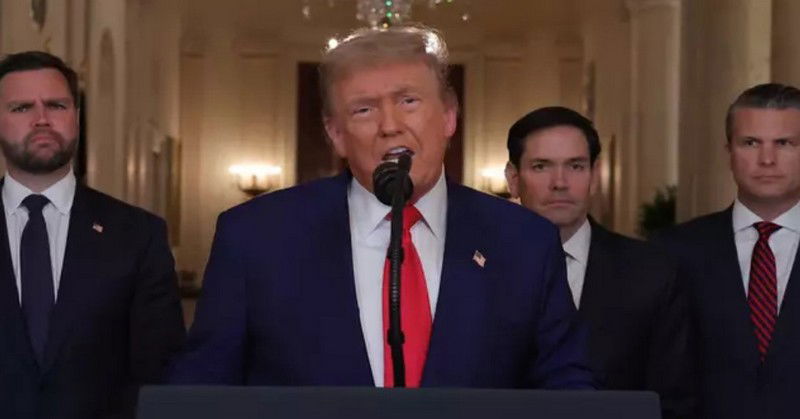
Following the U.S. assault, Trump’s national address drew widespread scrutiny.
Critics compared his demeanor to that of former presidents during times of crisis, suggesting he appeared visibly anxious.
In his statement, Trump said: “Our goal was to dismantle Iran’s nuclear enrichment capabilities and neutralize the threat posed by the world’s leading state sponsor of terrorism. I can report that the strikes achieved complete success. Iran’s nuclear infrastructure has been wiped out. Iran must now choose peace—or face even greater consequences.”
Social media platforms, particularly Twitter, quickly filled with commentary on Trump’s tone and body language during the address.
Many contrasted his delivery with speeches given by Joe Biden, Barack Obama, and George W. Bush during similar moments of international tension.
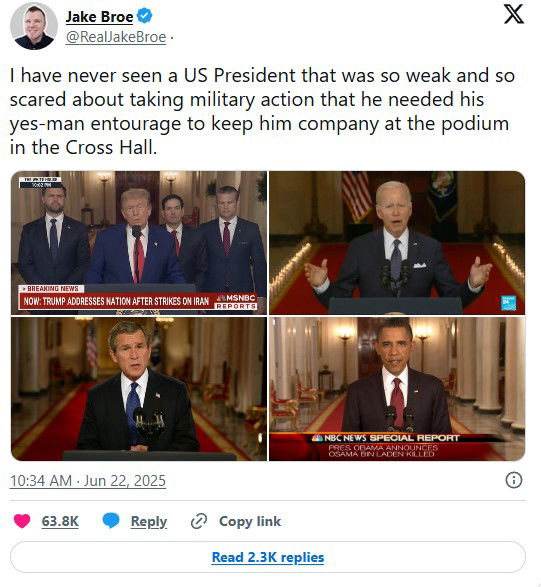
One user posted side-by-side images of Trump and past presidents, saying: “Never seen a U.S. President so visibly uneasy announcing military action. He needed his inner circle standing beside him like a safety blanket.”
During the speech, Vice President JD Vance, Defense Secretary Pete Hegseth, and Secretary of State Marco Rubio stood behind Trump.
Another user tweeted: “Trump seemed visibly uncomfortable during that very brief speech. It feels like he’s hoping Iran doesn’t retaliate too harshly.”
A third commented: “Trump looked more nervous than I’ve ever seen him. It’s like he knows Iran’s response could be nuclear.”
A fourth remarked: “@realDonaldTrump looked unsure. His voice lacked conviction, like he’s uncertain about the chain reaction he may have started and what it means for America’s future.”
In the wake of the strike, experts have raised alarms about possible spikes in oil and gas prices, as well as increased domestic security threats.
Some analysts are warning of potential attacks from “sleeper cells”—individuals already within the U.S. who may act on foreign orders.
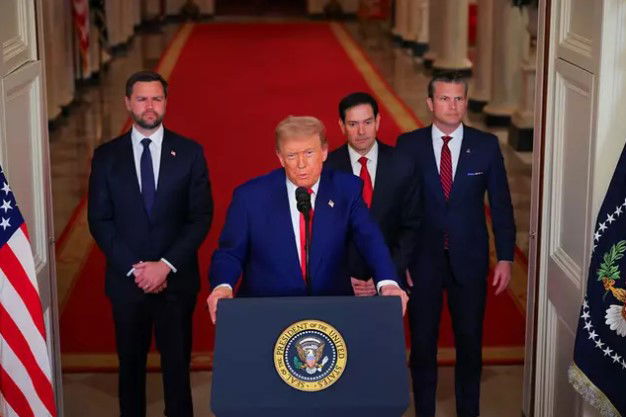
Meanwhile, before Iran’s retaliatory strike on June 23, Israel launched a new offensive aimed at disrupting access to Iran’s Fordow facility, one of the sites hit by the U.S.
Israel’s defense minister stated that they were hitting Tehran with “unprecedented force.” At the same time, Trump suggested the possibility of pushing for regime change in Iran.
This latest escalation traces back to June 13, when Israel initiated a significant military operation against Iran’s nuclear infrastructure, resulting in the deaths of scientists and senior military personnel.
Iran responded with attacks of its own, and since then, both countries have been engaged in a series of retaliatory strikes.
Leaders from around the world, including in the UK, have urged both sides to de-escalate and return to diplomatic negotiations.
